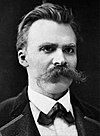


Reddit meter
Fundamental Principles of the Metaphysics of Morals
84 pages, 2009
Many philosophers have tried to determine what is and what is not moral. Immanuel Kant was one of the most influential moral philosophers in the eighteenth and nineteenth centuries with his work, Fundamental Principles of the Metaphysics of Morals (1785). Kant rejects that positive or negative effects have any importance in the moral appraisal of human activity by rejecting the results or consequences of action as the foundation of moral judgments (Kant, 1785).
We must instead rely on the Good Will to guide us. What exactly is this Will on which so much emphasis is placed, and how does it serve as the foundation for really moral behavior? In this paper, I argue that Kant's ethical stance has been a major influence on Western civilization and will continue to be so.
In Fundamental Principles of the Metaphysics of Morals, Immanuel Kant introduces the idea of 'good will'. He believes that the only thing that is truly good in itself is a good will. It's not about the outcome of our actions, but the intention behind them. So, if you want to understand morality, you need to explore this concept.
Kant digs deep into the concept of duty and moral law. He argues that moral actions are not based on feelings or outcomes, but on duty. This means that we should do the right thing simply because it's the right thing to do, not because of what we might gain from it. It's a challenging concept, but definitely worth looking into.
One of the key ideas in the book is the 'Categorical Imperative'. This is a principle that Kant believes should guide all our actions. It's a rule that says we should only act in ways that we would want everyone else to act as well. If you're interested in ethics, you should definitely check this out.
Kant also discusses the idea of 'autonomy of the will'. He believes that for an action to be truly moral, it must come from our own free will. This means that we should not be influenced by external factors or desires. It's a thought-provoking concept that encourages us to take a look at our own motivations.
In Fundamental Principles of the Metaphysics of Morals, Kant emphasizes the role of reason in moral decision-making. He argues that our ability to reason is what allows us to distinguish right from wrong. So, if you're interested in the relationship between reason and morality, this book is a must-read.
Quotes 5
Kant's 'Fundamental Principles of the Metaphysics of Morals' is a beacon of enlightenment, guiding us towards understanding the universe and our place within it.
 Albert Einstein - Theoretical physicist
Albert Einstein - Theoretical physicistKant's 'Fundamental Principles of the Metaphysics of Morals' is a profound exploration of human morality, challenging us to question our own ethical foundations.
 Friedrich Nietzsche - Philosopher, Philologist
Friedrich Nietzsche - Philosopher, PhilologistKant's 'Fundamental Principles of the Metaphysics of Morals' is a cornerstone of modern philosophy, shaping our understanding of justice and fairness.
 John Rawls - Political philosopher
John Rawls - Political philosopherKant's 'Fundamental Principles of the Metaphysics of Morals' is a monumental work, offering profound insights into the nature of morality and ethics.
 Bertrand Russell - Logician, Philosopher
Bertrand Russell - Logician, PhilosopherKant's 'Fundamental Principles of the Metaphysics of Morals' is a masterful treatise on ethics, challenging us to rethink our understanding of right and wrong.
 Arthur Schopenhauer - Philosopher, Author
Arthur Schopenhauer - Philosopher, Author










